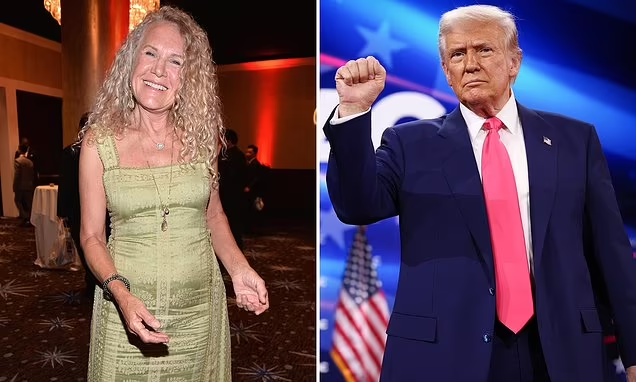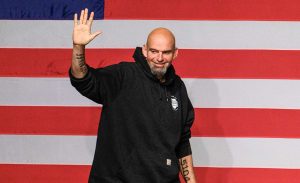NOTE: VIDEO at the end of the article.
Christy Walton, the billionaire Walmart heiress, has ignited a nationwide controversy by publicly denouncing former President Donald Trump and aligning herself with the growing anti-authoritarian “No Kings” movement. Her decision marks a sharp departure from the Walton family’s historically apolitical posture and has sparked intense public and media debate over free speech, corporate influence, and the role of wealth in politics.
In a bold move, Walton financed full-page national ads warning against authoritarianism and advocating for democratic resistance—actions that many see as an open challenge to Trump’s influence. While she made it clear that these statements reflect her personal views and not those of Walmart, her name and fortune are closely tied to the company, making the separation murky in the eyes of the public.
This rare political move by a member of the Walton family has raised immediate concerns for Walmart’s reputation. On social media, calls for boycotts erupted almost instantly, with critics accusing Walton of politicizing her wealth and misusing her influence. Walmart, in response, issued a statement distancing itself from Walton’s actions, noting that the company had no involvement in the ads.
Beyond corporate optics, Walton’s activism is fueling constitutional debates. The First Amendment guarantees every American the right to free speech, but critics argue that when billionaires use their resources to project political messages, it creates an imbalance in public influence. These concerns echo long-standing debates over the 2010 Citizens United v. FEC Supreme Court decision, which expanded protections for political spending under the First Amendment. Supporters of Walton’s move defend it as an expression of her constitutional rights, while detractors warn of the dangers of concentrated wealth shaping public opinion.
Economically, the situation is complicated. Walmart, with over 1.6 million employees and a massive consumer base, walks a fine line between profit and public image. Past decisions—like pulling Confederate flag merchandise or restricting gun sales—already positioned the company in politically sensitive waters. Walton’s high-profile stance could invite renewed scrutiny and financial backlash, potentially affecting employees, investors, and everyday customers.
Though she does not manage Walmart’s operations or trusts, Walton’s actions inevitably reflect back on the brand. Through her philanthropic initiative, Innovaciones Alumbra, she has long supported environmental and social causes, but her recent political involvement places her in a new and more controversial light.
Historically, wealthy Americans—from Rockefeller to Carnegie—have used their fortunes to influence policy and social change. Walton’s approach may be more modern, but it raises the same enduring question: How should private wealth interact with public life?
In the end, Walton’s statements reflect the tension between individual liberty and collective consequences. Her message, though divisive, underscores the ongoing national conversation about democracy, wealth, and freedom. As the backlash unfolds, her case serves as a reminder of both the power and the responsibility that come with immense influence in a democratic society.
PLAY:

James Jenkins is a celebrated Pulitzer Prize-winning author whose work has reshaped the way readers think about social justice and human rights in America. Raised in Atlanta, Georgia, James grew up in a community that instilled in him both resilience and a strong sense of responsibility toward others. After studying political science and creative writing at Howard University, he worked as a journalist covering civil rights issues before dedicating himself fully to fiction. His novels are known for their sharp, empathetic portraits of marginalized communities and for weaving personal stories with broader political realities. Jenkins’s breakout novel, Shadows of Freedom, won national acclaim for its unflinching look at systemic inequality, while his more recent works explore themes of identity, resilience, and the fight for dignity in the face of oppression. Beyond his novels, James is an active public speaker, lecturing at universities and participating in nonprofit initiatives that support literacy and community empowerment. He believes that storytelling is a way to preserve history and inspire change. When not writing, James enjoys jazz music, mentoring young writers, and traveling with his family to explore cultures and stories around the world.









